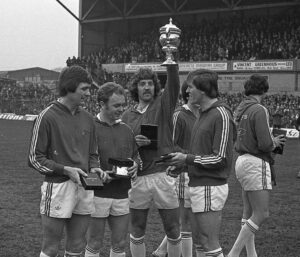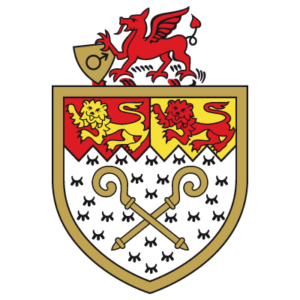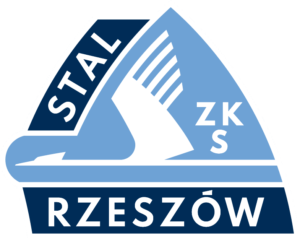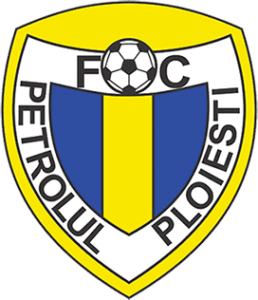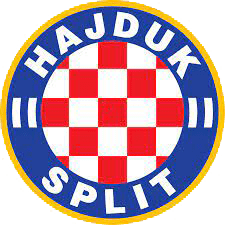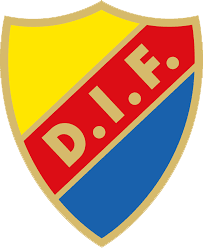Wrexham AFC – The Football League Era

1925/26 Wrexham fans enjoying a day out at Wigan Borough
Wrexham AFC’s successful run in the Welsh Cup continued in 1921 and the following season were elected to join the newly formed Division Three North of the English Football League. Further Welsh Cup wins followed in 1924, 1925 and 1931, and the club narrowly missed out on promotion to the Second Division of the English Football League, finishing as runners-up the in the 1932/33 season in Division Three North. World War Two stopped competitive professional football in 1939, although Wrexham AFC continued to play occasional games in different sections of The North Regional League, with a number of often higher league guest players, such as Stanley Matthews and Stan Cullis who were stationed in the town during this period.
With the restart of professional football in 1946, Wrexham AFC finished third in the league, but could not follow up on the success of the pre-war seasons until winning the Welsh Cup in 1957, a significant year for the Club in respect of the Racecourse achieving its record attendance for a 4th round English FA Cup tie against Manchester United in front of 34,445 spectators. Although losing 5-0, the funds generated from the match allowed the Club to invest in the Racecourse, and begin a 5-year ground improvement plan with the intention of raising the crowd capacity to 45,000. The ambition to grow the Club at the Racecourse is not just a modern phenomenon!
However, the off-field ambition was not immediately matched by the on-field exploits, with the end of the 1959/60 season ending in relegation for the first time in the Club’s history, dropping into the recently-formed Fourth Division of the English Football League just days before winning the Welsh Cup once more. The 1961/62 season saw the Town promoted back to Division Three (including the 10–1 defeat of Hartlepool United, which is still the club’s record league victory) where they remained for another two seasons before being relegated back to Division Four.

1972 – Action at FC Zurich European Cup Winners Cup
The 1969/70 is arguably the start of the Club’s ‘golden era’ which began with promotion back to Division Three and winning the Welsh Cup the next season, which now entitled the winners to play in the European Cup Winners Cup as Wales representatives even though they competed in the English pyramid. On a magical September night in 1972, Wrexham AFC drew their opening tie against FC Zurich in away European Cup Winners Cup match, and in front of a reported crowd of 18,000, won 2-1 to progress to the second round. And, although knocked out in the 2nd round by Hajduk Split of then Yugoslavia on away goals, the Club had shown that they were about to enjoy some real success across both domestic and European football.
The 1973–74 season saw Wrexham AFC reach the quarter-finals of the FA Cup in another cup run. After victories over Shrewsbury Town, Rotherham United, Middlesbrough, Crystal Palace and Southampton, their cup run finally came to an end with a loss to first division side Burnley at Turf Moor, with just over 20,000 Wrexham fans present to watch the match. Also that season Wrexham just missed out on the promotion spots, finishing in 4th place at the end of the season.
In fact, 1975–76 saw the club once more qualifying for the European Cup Winners Cup reaching the quarter final stage, having beat Swedish team Djurgårdens IF 3–2 on aggregate and Polish side Stal Rzeszow 3–1 on aggregate, only then beaten by single goal difference over two legs by the eventual winners of the competition, Belgian champions Anderlecht who fielded a number of international standard players.
The 1976–77 season saw Wrexham AFC again beat First Division opposition in both Cup competitions as they beat Tottenham Hotspur in the Football League Cup at White Hart Lane and Sunderland in the FA Cup. However, in the league, the club, on the verge of promotion to the second division with only four matches left to play, needing just three points to reach their goal, unbelievably missed out after a poor run of form.
Arfon Griffiths took over as player-manager for the 1977–78 season, and the team had already earned itself a reputation as ‘giantkillers’ in cup competitions throughout the 1970’s, beating a number of top flight teams to reach the quarter finals of both the English F.A. Cup and the English League Cup in 1978 as well as winning the Welsh Cup and finishing the season as Champions of Division Three, clinching promotion for the first time to Division Two with a demolition of Rotherham United 7–1 at the Racecourse, going on to win the Third Division Championship.
In the 1978–79 season Wrexham AFC made it to the fourth round of the FA Cup, where they narrowly lost to Tottenham Hotspur 3–2 in the replay after the first game finished 3–3. The Spurs team had stars amongst their ranks such as Ossie Ardiles, Ricky Villa, and Glenn Hoddle, and Wrexham were unfortunate to get knocked out.
The club remained in Division Two for four seasons but were relegated back to Division Three in 1982 and again back to Division Four in 1983. In possibly their greatest giant killing achievement, Wrexham AFC defeated FC Porto in the first round of the European Cup Winners Cup in 1984, winning 1-0 in the home tie, before losing a hard-fought away tie 4-3 and progressing on the away goals rule. To give this result context, Porto had narrowly lost the previous year’s Cup Winners’ Cup final, won the 1984 Portuguese Cup, and had provided nine players to the Portuguese national team who reached that year’s European Championships semi-finals. Wrexham, meanwhile, only had 13 professionals in their team! The second-round draw was to pair Wrexham with Italian AS Roma, managed by Sven-Göran Eriksson. Wrexham AFC lost 3–0 on aggregate over the two legs.
Unfortunately, the Club continued to struggle domestically in the succeeding years and finished bottom of the league in 1991, although they were saved from relegation to the Conference Premier as another team had already voluntarily left the league.

1992 Wrexham v Arsenal 3rd Round FA Cup
The following season Wrexham caused perhaps their greatest ever football shock when they defeated the then reigning champions of English League football, Arsenal, in the third round of the English F.A. Cup at The Racecourse, having beaten Telford United and Winsford United they were drawn to play the previous season’s First Division champions. Wrexham AFC, in front of a near full house at the Racecourse, produced one of the most famous giant killings in history to beat Arsenal 2–1 after being a goal behind with only 8 minutes of normal time left, thanks to a Mickey Thomas free kick and a goal poacher’s masterpiece from Steve Watkin. Wrexham then narrowly lost in the next round to West Ham United 1–0 in a replay after the first game had finished 2–2.
Although the Club’s heyday seemed to have passed, the 1992–93 season saw Wrexham’s season came to a head on the 27th April 1993 when, with two games left they travelled to Northampton Town requiring a win to gain promotion to the next tier of the English football. The game ended with a 2–0 victory to Wrexham in front of 5,500 travelling fans, and promotion had finally been achieved.
The 1994–95 season would see Wrexham achieve more success in cup competitions, this time going on a run through the FA Cup. Having beaten Stockport County and Rotherham United, they faced Premier League side Ipswich Town at the Racecourse, with Wrexham winning 2–1 leading to a tie in the next round away to Manchester United and despite taking the lead at Old Trafford, United went on to win 5–2. Despite winning the Welsh Cup once more in 1995, beating Cardiff City 2-0 at the National Stadium, Cardiff Arms Park, the FAW had decided only clubs playing in Wales could compete in the Welsh Cup, and that was the last time Wrexham competed in a competition that they still hold the record number of wins in. Despite the Club’s historic contribution to establishing Welsh football in the first place, the Club is no longer eligible for the competition, or entry in to European competition as Welsh representatives. Wrexham AFC’s final match in the European Cup-Winners’ Cup was against Romanian side Petrolul Ploiesti, the home leg ended in a 0–0 draw but Wrexham losing 1–0 in the away leg, a 1-0 defeat on aggregate.
It was, and remains, a strange decision to exclude higher level Welsh clubs from a domestic competition, and appears to have been an attempt to try and force Welsh clubs to abandon the English pyramid, and play in the then fledgling League of Wales, which, although of a fair standard, would ultimately lead to the financial death of Clubs who continue to ply their trade in the English leagues and take pride in their Welshness in the face of rejection by their own countries Football Association. Considering the fact that the most successful club in the League of Wales is in fact based entirely in England, the decision to exclude the English pyramid clubs from their competition is bizarre to say the least.
The 1996–97 season saw Wrexham set off on another giant killing run in the FA Cup drawing 1-1 at home to West Ham United at home, and winning the replay at Upton Park 1–0. After also beating Peterborough United and Birmingham City in the following rounds, they narrowly lost 1–0 to Chesterfield in an all-Division-2 FA Cup quarter final.
The proceeds from the Cup runs, plus the sale of Brian Hughes to Birmingham, led in June 1997, to the official opening of Colliers Park, Wrexham AFC’s new training complex built at a cost of £750,000 and was widely regarded to be one of the best training grounds outside of the top division. It has been used for training by many visiting teams that play at a higher standard over the years, and was finally taken over by the FAW as their regional training centre.
New Club Badge
Wrexham AFC’s club badge, Wrexham Borough coat of arms, was dropped in 1973. The change was because the Club had no copyright over the coat of arms and in effect anyone could make use of the design, reducing possible income from replica shirts, scarfs etc.
In February 1973, the Club a competition amongst the fans for a new design for the club badge with a closing date in March, and the current badge dates from that time, apart from changes of date from 1872 to 1873 to 1864 as the date of the Club’s origin was changed due to new research.
Wrexham AFC European Cup Winners Cup Results

 Up until the beginning of the 90’s,the winners of the Welsh Cup were entered into the European Cup Winners Cup. After the creation of the Welsh Premiere League, any team that wished to enter the Welsh Cup had to play in the Welsh pyramid system, and Wrexham, and the 5 other Welsh clubs that ply their trade in the English system lost their right to enter European competition in this way. The table shows Wrexham’s record in Europe, which, considering we were a lower league team for these years, would still be the envy of many of our more illustrious neighbours.
Up until the beginning of the 90’s,the winners of the Welsh Cup were entered into the European Cup Winners Cup. After the creation of the Welsh Premiere League, any team that wished to enter the Welsh Cup had to play in the Welsh pyramid system, and Wrexham, and the 5 other Welsh clubs that ply their trade in the English system lost their right to enter European competition in this way. The table shows Wrexham’s record in Europe, which, considering we were a lower league team for these years, would still be the envy of many of our more illustrious neighbours.
One day, we’ll be back…..
| Season | Competition | Round | Opponent | Country | Home | Away | Aggregate |
|---|---|---|---|---|---|---|---|
| 1972–73 | Cup Winners' Cup | First Round | FC Zürich | Switzerland | 2–1 | 1–1 | 3–2 |
| Second Round | Hajduk Split | Yugoslavia | 3–1 | 0–2 | 3–3 | ||
| 1975–76 | Cup Winners' Cup | First Round | Djurgården | Sweden | 2–1 | 1–1 | 3–2 |
| Second Round | Stal Rzeszów | Poland | 2–0 | 1–1 | 3–1 | ||
| Quarter-Final | Anderlecht | Belgium | 1–1 | 0–1 | 1–2 | ||
| 1978–79 | Cup Winners' Cup | First Round | Rijeka | Yugoslavia | 2–0 | 0–3 | 2–3 |
| 1979–80 | Cup Winners' Cup | First Round | FC Magdeburg | East Germany | 3–2 | 2–5 | 5–7 |
| 1984–85 | Cup Winners' Cup | First Round | FC Porto | Portugal | 1–0 | 3–4 | 4–4 |
| Second Round | Roma | Italy | 0–1 | 0–2 | 0–3 | ||
| 1986–87 | Cup Winners' Cup | First Round | Żurrieq | Malta | 4–0 | 3–0 | 7–0 |
| Second Round | Real Zaragoza | Spain | 2–2 | 0–0 | 2–2 | ||
| 1990–91 | Cup Winners' Cup | First Round | Lyngby | Denmark | 0–0 | 1–0 | 1–0 |
| Second Round | Manchester United | England | 0–2 | 0–3 | 0–5 | ||
| 1995–96 | Cup Winners' Cup | First Round | Petrolul Ploiești | Romania | 0–0 | 0–1 | 0–1 |

